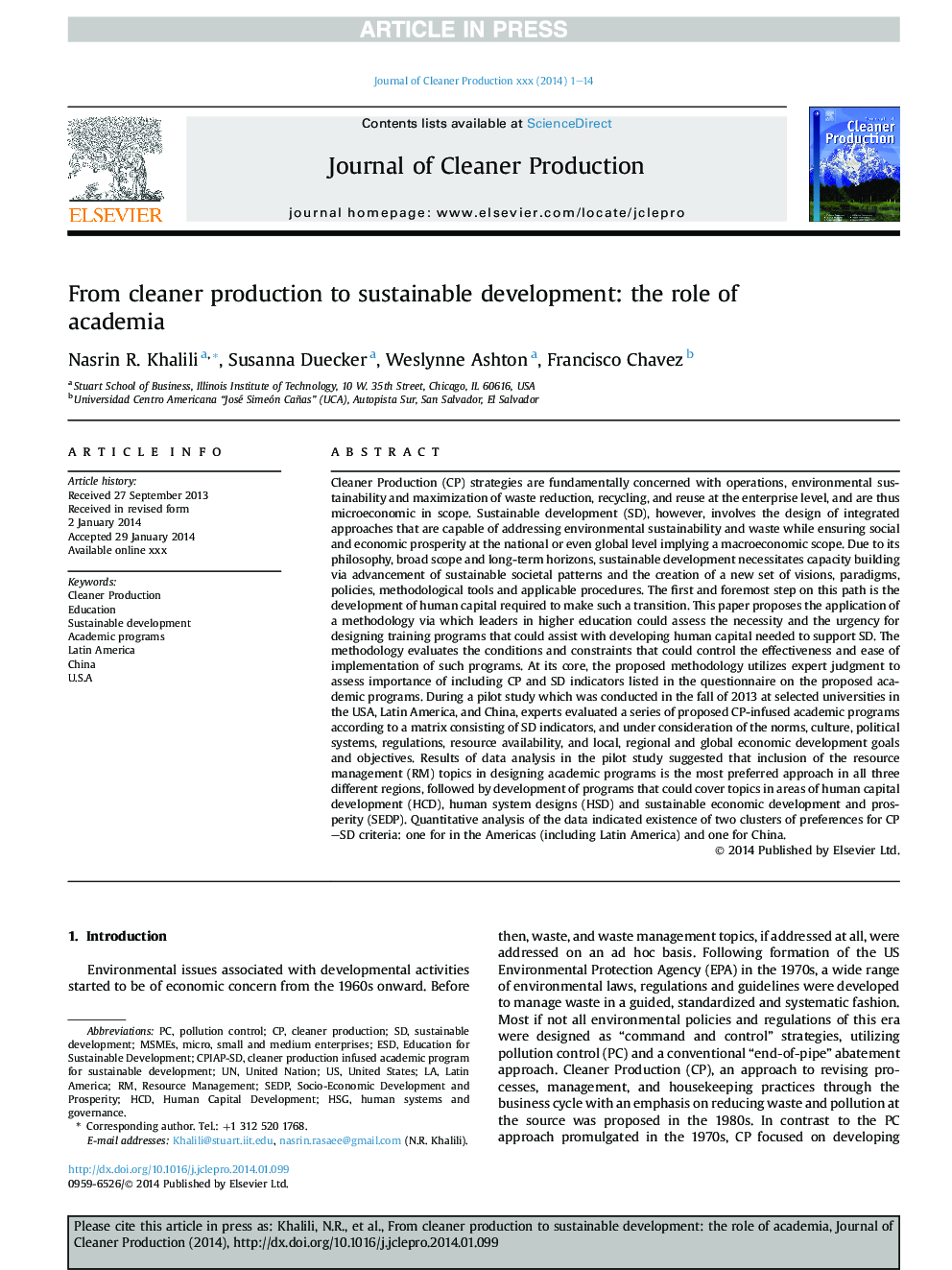| کد مقاله | کد نشریه | سال انتشار | مقاله انگلیسی | نسخه تمام متن |
|---|---|---|---|---|
| 8104270 | 1522150 | 2015 | 14 صفحه PDF | دانلود رایگان |
عنوان انگلیسی مقاله ISI
From cleaner production to sustainable development: the role of academia
ترجمه فارسی عنوان
از تولید تمیز به توسعه پایدار: نقش دانشگاهی
دانلود مقاله + سفارش ترجمه
دانلود مقاله ISI انگلیسی
رایگان برای ایرانیان
کلمات کلیدی
HCDESDMSMEsHSGLatin America - آمریکای لاتینEducation for Sustainable Development - آموزش برای توسعه پایدارUnited States - ایالات متحده آمریکاU.S.A - ایالات متحده آمریکاEducation - تحصیلاتHuman capital development - توسعه سرمایه انسانیSustainable development - توسعه پایدارCleaner production - تولید تمیزکنندهResource management - مدیریت منابعChina - کشور چینPollution control - کنترل آلودگی
موضوعات مرتبط
مهندسی و علوم پایه
مهندسی انرژی
انرژی های تجدید پذیر، توسعه پایدار و محیط زیست
چکیده انگلیسی
Cleaner Production (CP) strategies are fundamentally concerned with operations, environmental sustainability and maximization of waste reduction, recycling, and reuse at the enterprise level, and are thus microeconomic in scope. Sustainable development (SD), however, involves the design of integrated approaches that are capable of addressing environmental sustainability and waste while ensuring social and economic prosperity at the national or even global level implying a macroeconomic scope. Due to its philosophy, broad scope and long-term horizons, sustainable development necessitates capacity building via advancement of sustainable societal patterns and the creation of a new set of visions, paradigms, policies, methodological tools and applicable procedures. The first and foremost step on this path is the development of human capital required to make such a transition. This paper proposes the application of a methodology via which leaders in higher education could assess the necessity and the urgency for designing training programs that could assist with developing human capital needed to support SD. The methodology evaluates the conditions and constraints that could control the effectiveness and ease of implementation of such programs. At its core, the proposed methodology utilizes expert judgment to assess importance of including CP and SD indicators listed in the questionnaire on the proposed academic programs. During a pilot study which was conducted in the fall of 2013 at selected universities in the USA, Latin America, and China, experts evaluated a series of proposed CP-infused academic programs according to a matrix consisting of SD indicators, and under consideration of the norms, culture, political systems, regulations, resource availability, and local, regional and global economic development goals and objectives. Results of data analysis in the pilot study suggested that inclusion of the resource management (RM) topics in designing academic programs is the most preferred approach in all three different regions, followed by development of programs that could cover topics in areas of human capital development (HCD), human system designs (HSD) and sustainable economic development and prosperity (SEDP). Quantitative analysis of the data indicated existence of two clusters of preferences for CP-SD criteria: one for in the Americas (including Latin America) and one for China.
ناشر
Database: Elsevier - ScienceDirect (ساینس دایرکت)
Journal: Journal of Cleaner Production - Volume 96, 1 June 2015, Pages 30-43
Journal: Journal of Cleaner Production - Volume 96, 1 June 2015, Pages 30-43
نویسندگان
Nasrin R. Khalili, Susanna Duecker, Weslynne Ashton, Francisco Chavez,
